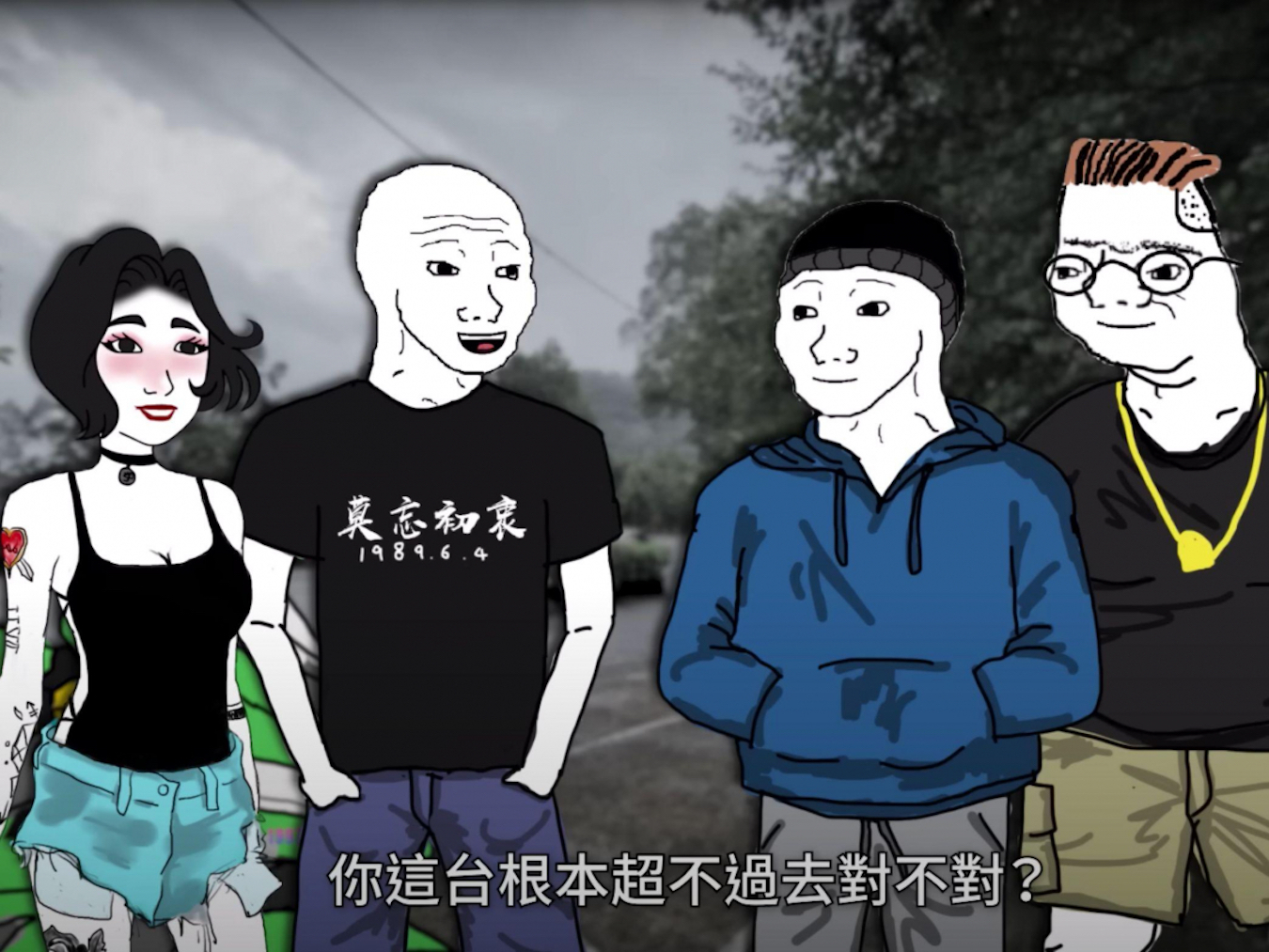by Brian Hioe
語言:
English
Photo Credit: Screenshot
A YOUTUBE ANIMATION, “Life of a Mountain Road Monkey” (山道猴子的一生), has become a sudden overnight hit in Taiwan. At time of writing, the animation has to close four million views–a figure suggesting that one in six Taiwanese has seen the video. The creator of “Life of a Mountain Road Monkey” is YouTuber Eric Duan.
The animation has two episodes, the first of which is around twenty minutes long, and the second of which is forty minutes long. In particular, the animation uses Wojak characters, and computer-generated voices for the characters. It is probably less the imagery that has stood out, however, but the story’s setting, dark humor, and the well-crafted script.
“Life of a Mountain Road Monkey” follows a group of young people in their twenties that race on mountainside roads with motorcycles, taking photos that they upload onto Instagram for clout. The protagonist is a worker at a thinly-disguised version of FamilyMart, here referred to as FartingMart.
The first part of “Life of a Mountain Road Monkey”
In particular, “Life of a Mountain Road Monkey” has a decidedly male perspective, in that the story follows the two relationships that the protagonist has with two female racers, who are also micro-influencers in the world of mountainside racing. The first relationship ends after the protagonist is dumped by his girlfriend after she cheats on him, despite taking out a number of loans to support her upgrading her equipment. In the second relationship, then, the protagonist is plagued by jealousy and suspicion that his girlfriend could be sleeping with male fans of hers.
There has been much social commentary on the “realism” of “Life of a Mountain Road Monkey,” in that there really are young people who race on mountainside roads and build up social media followings that way. Most of Duan’s other videos are about motorcycle racing, as a result of which there has been speculation that he may have drawn from real events. Other speculation has focused on motorcycle racing influencers that resemble characters from the story. Duan has himself denied basing the story on reality, however.
Part of why “Life of a Mountain Road Monkey” has found resonance may have to do with a sense of male disenfranchisement, in the face of economic hardship. The protagonist is clearly driven to participate in racing to attract attention online, including attracting the attention of the opposite sex.
One has seen this in recent times in Taiwanese society, such as with the rally called by former NPP chair Huang Kuo-chang and political streamer Holger Chen for housing justice and judicial reform in July. Though the rally took a stance against economic inequality in Taiwanese society, it was noted that it had a heavily male composition, probably because of Huang and Chen’s macho public personas. When criticized for this, some attendees of the rally doubled down on reasons why women were not there, including claims that women were busy shopping or taking care of kids to involve themselves in weighty matters such as the unaffordability of housing for young people. This could be observed in statements by TPP legislator Lai Hsiang-lin, as well as PTT posts on the matter.
The second part of “Life of a Mountain Road Monkey”
But, to that extent, “Life of a Mountain Road Monkey” also depicts how young people in Taiwanese society fixate on social media clout as a form of escapism from their dead-end jobs. If the protagonist is often lashing out at women, it is because he views himself as not having the financial resources to attract a partner, in paying for their expenses.
Even if the narrative’s sense of male disenfranchisement has incel undertones, “Life of a Mountain Road Monkey” is critical of the worldview, the worldview of its protagonist and the narrative is largely centered around mocking him. The conclusion of the story frames it as something of a moral tale. Yet this is likely why “Life of a Mountain Road Monkey” has found such resonance, in that it strikes at something about the lived experiences of young people in Taiwan today.
In the meantime, life imitates art. Police in parts of Taiwan have noted the popularity of the animation and stepped up patrols for mountainside races. FamilyMart itself got in on the fun, emphasizing on its social media account that it was “FamilyMart” and not “FartingMart.” More broadly, it is to be seen whether there will be any social commentary on young people’s dire economic conditions or fixation on social media as an escape from harsh realities in the wake of the animation becoming a hit.



